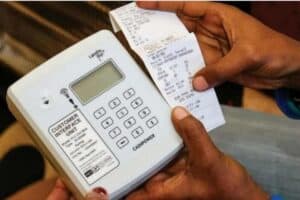Eskom has previously denied the existence of more than one report into the 2008 loadshedding crisis.

Two internal probes commissioned by Eskom to get to the bottom of the power utility’s 2008 loadshedding problems reveal disturbing allegations of corruption by senior executives inside the national power producer.
The first report into the causes of loadshedding, Eskom’s financial crisis and delays in the building of new infrastructure was the Dentons report. The document was kept under wraps from the public for two years after it was submitted to Eskom’s board in May 2015.
But after much public pressure to release the interim report, last week Eskom’s board, led by chairperson Ben Ngubane, ceded to make the contents of the controversial report public, but there were strings attached, as only the “cleansed” version of the report was released.
Ngubane said only a handful of individuals who applied to access the report by the US-based law firm would see it, though members of the public would need to apply in terms of the Promotion of Access to Information Act (PAIA) to obtain the document.
The names of the executives implicated in the report were redacted from all who saw it and then apparently destroyed.
Ngubane said Eskom used the recommendations of the report to implement the utility’s turnaround strategy, with only 13 of the 18 recommendations being implemented. But Dentons maintains the investigation should have continued and not stopped by the board.
The Financial Mail reported last week on the earlier versions of the Dentons report, which reveal what might have contributed to its own financial challenges through questionable procurement deals, poor contract management and the flouting of National Treasury regulations.
ALSO READ: How loadshedding was used as money-making scheme by Eskom staff – report
The weekly reported on details of family dealings and deliberate loadshedding, which apparently implicated executives and top managers at Eskom into diverting contracts for personal enrichment. These reportedly included coal and logistics deals.
The latest report to emerge into the power producer by auditing firm Deloitte was conducted in 2011, looking at emergency procurement contracts concluded in 2008. Eskom has previously denied the existence of more than one report into the loadshedding crisis.
On Wednesday, The Times reported that former Eskom manager Koos Jordaan, named as the then lead procurement negotiator, benefited from the blackouts that plagued the country.
The paper reports he was “given the job of buying more than R10 billion of emergency coal during the 2008 power crisis, negotiated several ‘irregular’ contracts – including one with a friend – and resigned shortly after an investigation was launched”.
President Jacob Zuma was apparently aware of the corruption at Eskom following a Special Investigating Unit investigation. The report was handed to him in 2014.
“Both reports [Dentons and Deloitte] point to the possibility of criminal activity related to the emergency procurement of ‘blackout’ coal under the watch of lead procurement negotiator Koos Jordaan,” The Times reported.
An estimated R300 billion was lost in the South African economy during the spate of blackouts, which the paper alleges “was engineered to benefit favoured companies” through the abuse of Eskom’s emergency mandate, resulting in fruitless and wasteful expenditure being incurred.






